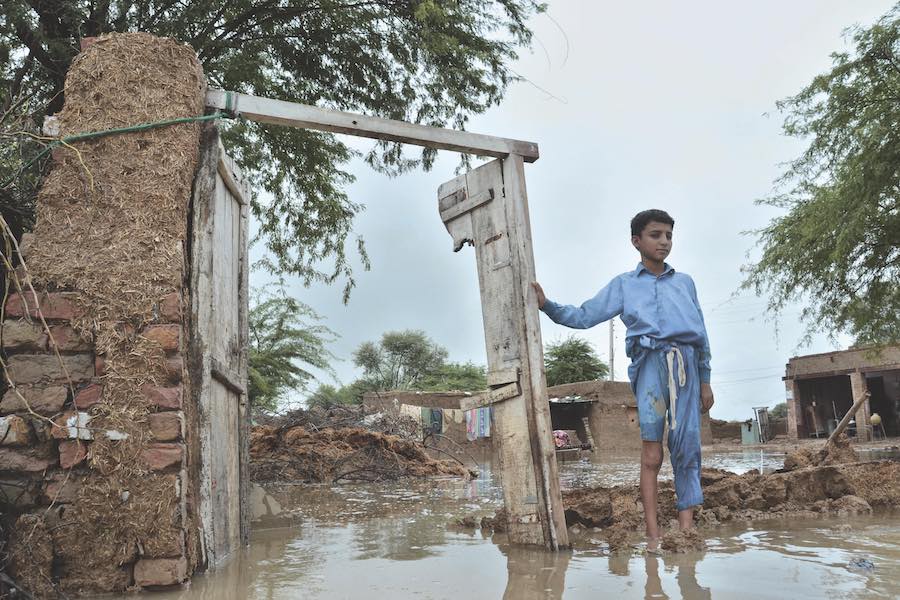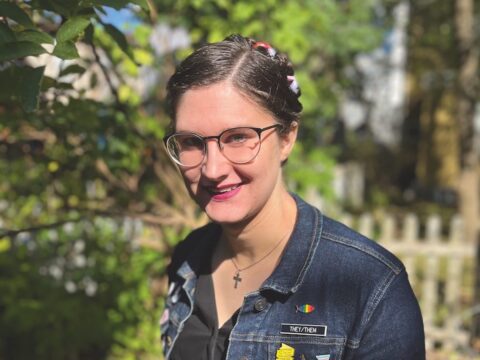While Monsoon season is a part of life in Pakistan, what happened between June and October 2022 was not. In a roughly four-month span, extreme flooding led to the deaths of more than 1,700 people, the displacement of 33 million more and approximately US$40 billion in damages. At one point, a third of the country — including historical landmarks like the Mohenjo-daro, a 5,000-year-old ruin and one of Pakistan’s six UNESCO World Heritage Sites — was under water. It was Pakistan’s deadliest flood since 2010 and the worst in the country’s history.
The unusually heavy rainfall that caused the flooding has irrefutably been linked to climate change. But who was responsible? And who must pay? Certainly not Pakistan, which is, proportionally speaking, one of the lowest producers of greenhouse gases in the world.
You may unsubscribe from any of our newsletters at any time.
Enter climate reparations: the idea that the world’s largest emitters of greenhouse gases — China, the United States, India, Russia and Japan, to name a few — should compensate developing countries, like Pakistan, that have faced the brunt of the climate crisis. The concept first became part of the agenda at the United Nations Climate Change Conference in 2021. At last year’s meeting, an agreement was reached to provide and distribute “loss and damage” funding to the world’s most affected nations.
“This outcome moves us forward [on] how we address the impacts on communities whose lives have been ruined by the very worst impacts of climate change,” said Simon Stiell, the UN climate change executive secretary, in a statement. Though this decision may seem like a victory, it’s difficult to think of it as more than merely symbolic. The details of how funding would be distributed were not fleshed out, and funding arrangements and the fund itself will not become operational until at least the next conference, beginning on Nov. 30, 2023. What’s more, a 2022 United Nations report declared there is “no credible pathway” to meet the goals set in the 2015 Paris Agreement; only “rapid transformation” can avert catastrophe.
As the London School of Economics and Political Science reports, the fund needs to provide fast finance for recovery following climate-fuelled disaster events. Without a proper framework or sense of urgency, however, that won’t happen.
More on Broadview:
- The United Church has an ambitious climate goal — but it needs help from congregations
- Muslims are calling for a ‘greener’ Ramadan
- Indigenous forester sees this fuel source as better for the environment and his culture
According to a 2020 study in The Lancet Planetary Health, the Global North is responsible for 92 percent of excess greenhouse gas emissions worldwide. The 10 countries most at risk for climate disaster, meanwhile, are all in the Global South. The study’s author, economic anthropologist Jason Hickel, goes further, describing the disproportionate amount of emissions caused by countries in the Global North as “atmospheric colonisation” because of the way western nations have irrevocably altered the lives of people in the Global South.
In the future fight against climate disasters, it will be crucial for countries in the Global North to listen and learn from the ones worst impacted in the Global South. Creating an equitable and actionable framework to distribute funding is both a large and simple hurdle to cross, but it is possible if the international community works together.
***
Aysha White is a journalist in Montreal.
This story first appeared in Broadview’s July/August 2023 issue with the title, “Why We Need Climate Reparations.”













